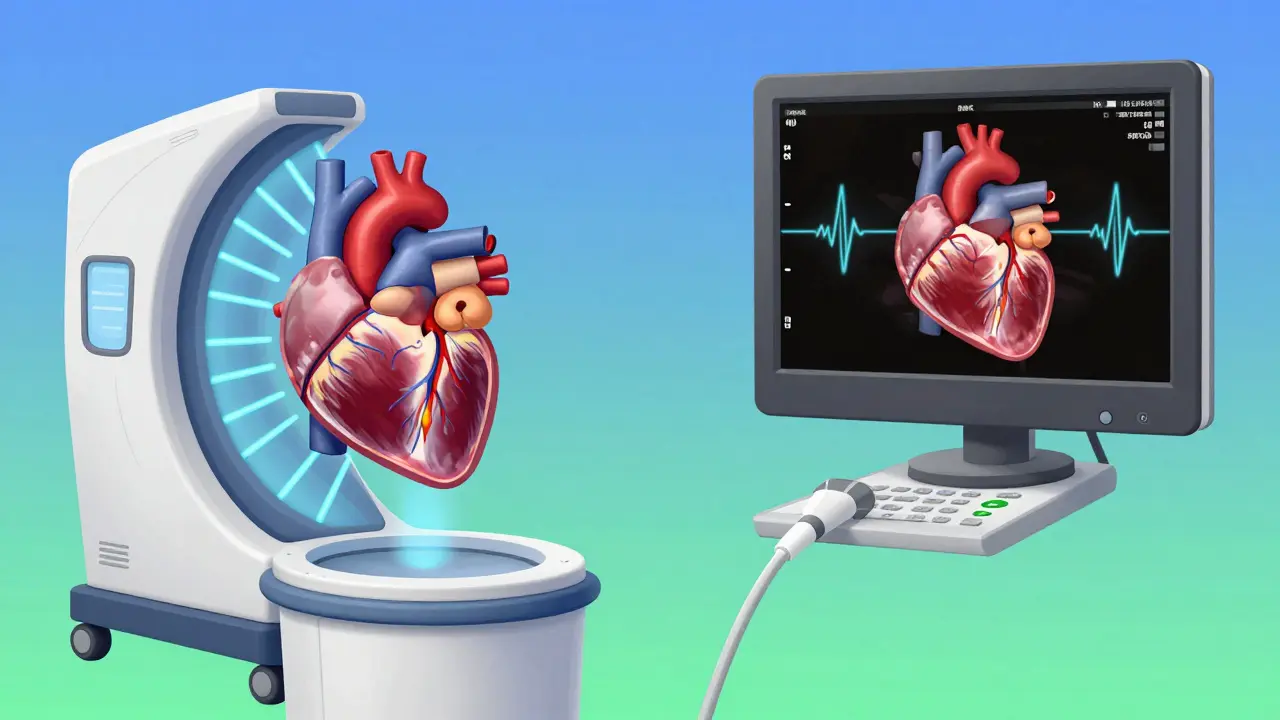Cardiac MRI and echocardiography are key tools for heart imaging. Learn how each works, their strengths, and when doctors recommend one over the other. Find out which test is best for your specific heart health needs.
Heart Health: Practical Steps You Can Use Today
Heart problems can feel overwhelming, but small, specific steps change outcomes fast. Want to lower blood pressure, avoid dangerous drug interactions, and keep your meds working? Start with clear actions you can take this week—track symptoms, check meds, and ask for simple blood tests.
Medications and safety: what to watch for
Many heart conditions depend on medicines like diuretics, ACE inhibitors, beta blockers or potassium-sparing drugs. If you take furosemide (Lasix), expect faster fluid loss; that can drop blood pressure and lower potassium. If you’re on spironolactone, mixing alcohol raises the risk of dehydration and dangerous potassium spikes. Ask your doctor for a baseline electrolyte panel (sodium, potassium, creatinine) within a week of starting or changing doses, and again after any big dose change.
Some meds affect minerals and calcium handling. For example, calcitriol (Rocaltrol) changes calcium levels—if you take it with other drugs that alter calcium or kidney function, your doctor should monitor blood calcium and kidney tests frequently. Never stop or swap heart meds on your own. If you notice dizziness, racing heart, sudden swelling, or a rapid weight gain of 2 kg (4–5 lb) in 48 hours, call your clinician.
Everyday habits that actually help
Small, measurable changes beat vague promises. Aim for 150 minutes of moderate aerobic activity per week (brisk walking counts). Cut added salt—try to keep sodium under about 2,000 mg per day; that usually means cooking more at home and skipping processed ready meals. Eat at least five servings of vegetables and fruit daily and swap refined carbs for whole grains.
Keep alcohol modest: no more than 1 drink a day for women, 2 for men. Sleep 7–9 hours, and quit smoking—if cold turkey feels impossible, ask about nicotine replacement or a quit plan. Track your blood pressure at home with a validated cuff; bring a week of morning and evening readings to your next visit so your doctor can see patterns, not a single number.
Weight and stress matter. Losing 5–10% of body weight often lowers blood pressure. Use simple stress tools: five minutes of focused breathing, a short walk, or a 10-minute distraction that works for you—consistency beats intensity.
If you order meds online, use pharmacies that require prescriptions, show clear contact info, and have good reviews. Avoid deals that look too good—especially for heart drugs where quality and correct dosing matter. Keep a printed or digital list of every pill you take and share it with any new provider.
Start by doing two things today: measure your blood pressure and make a list of all medicines and supplements you take. Bring that list to your next appointment and ask about simple blood tests to make sure your treatment is safe and working.
Hey there, health enthusiasts! I've just stumbled upon this magical elixir called Heart's Ease Dietary Supplement, and it's given my ticker a well-deserved boost! This little wonder is packed with heart-healthy benefits that'll make your heart beat a happy tune. Imagine your heart donning a superhero cape, that's what this supplement does - it strengthens your heart, improves circulation, and even helps manage cholesterol. So, if you're keen on giving your heart the TLC it deserves, Heart's Ease Dietary Supplement might just be your heart's new best friend!

